Japanese cat lore images are available. Japanese cat lore are a topic that is being searched for and liked by netizens today. You can Find and Download the Japanese cat lore files here.. cat meme png..
If you’re searching for japanese cat lore pictures information connected with to the japanese cat lore keyword, you have visit the right blog. Our site always gives you hints for refferencing the highest quality video and image content, please kindly surf and find more enlightening video content and graphics that match your interests.
Japanese Cat Lore. According to folklore a poor 17th-century monk lived in the small Gōtoku-ji temple in Setagaya Tokyo with his pet bobtail cat. According to lore cats who lived preternaturally long evolved into these bakeneko killed their owners. This cat has been a symbol of luck and happiness since the Edo period as well. The folklore that a cat has 9 lives possibly came about because 9 is the trinity of trinities and was considered lucky.
 Bakeneko Mythical Creatures Art Creature Art Japanese Myth From pinterest.com
Bakeneko Mythical Creatures Art Creature Art Japanese Myth From pinterest.com
The folklore that a cat has 9 lives possibly came about because 9 is the trinity of trinities and was considered lucky. More specifically it is a kaibyō or supernatural cat. It is often confused with the nekomata another cat-like yōkai. A cat has 9 lives. CC BY SA 30 Traditional Maneki Neko usually resemble the Japanese bobtail cat. In this telling leopard cats that grow old gain a divine spiritual power shapeshift into a beautiful man or woman and suck the spirit out of humans.
Knowing this it should come as no surprise that the maneki-neko is believed to represent one particularly legendary cat.
Literally the beckoning cat it is often referred to in English as the good fortune or good luck cat. In Chinese lore there is a cat yōkai called senri 仙狸 where 狸 means leopard cat. The Supernatural Cats of Japan was born. It is often confused with the nekomata another cat-like yōkai. Its Meaning and Powers. In this telling leopard cats that grow old gain a divine spiritual power shapeshift into a beautiful man or woman and suck the spirit out of humans.
 Source: japanpowered.com
Source: japanpowered.com
A cat has 9 lives. The Japanese Lucky Cat is more traditionally known as Maneki Neko which translated means the beckoning cat. But in Japanese folklore feline friends have protective powers and symbolize good fortune. This ornamental fish is particularly appreciated for its bright colors and its symbolism. In Chinese lore there is a cat yōkai called senri 仙狸 where 狸 means leopard cat.
 Source: pinterest.com
Source: pinterest.com
An American and English proverb Cats and the Afterlife. For 3 he plays for 3 he strays and for the last 3 he stays. CC BY SA 30 With the strange or exceptional characteristic cats tend to have it is not surprising that the stories of Bakeneko and Nekomata also took hold and the mythical world was enhanced with their legendary stories. With neko translating to cat in English a nekomata is a type of cat yokai that originated from Japanese folklore. Onibaba The demonic hag of.
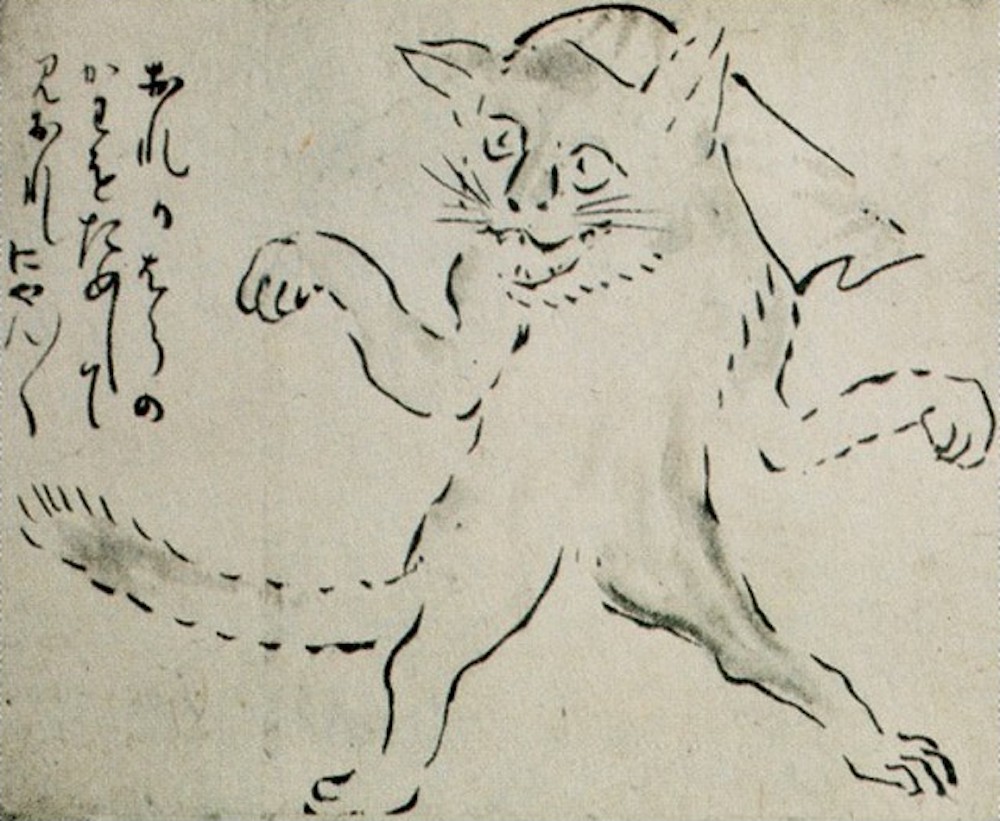 Source: zocalopublicsquare.org
Source: zocalopublicsquare.org
Even though that book was published in 2017 Davisson says that there is probably another Japanese cat folklore book on the horizon. According to lore cats who lived preternaturally long evolved into these bakeneko killed their owners. More specifically it is a kaibyō or supernatural cat. Every culture has a rich tapestry of folk tales and mythology and Japan is no exception. Tanuki The tanuki is still strongly.
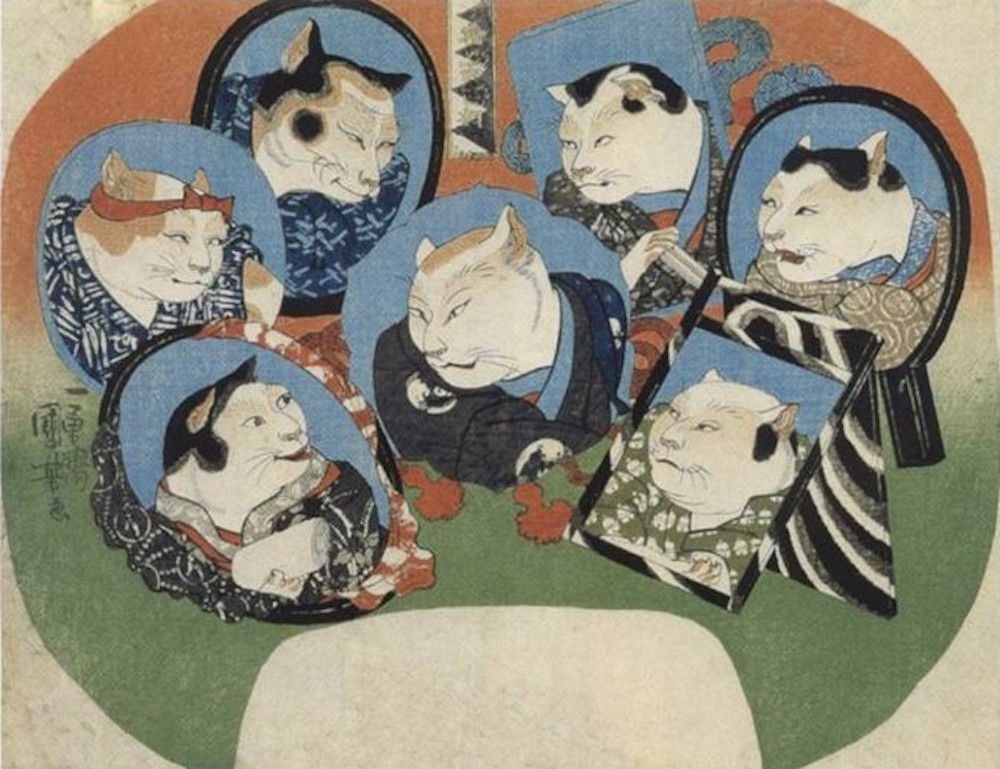 Source: zocalopublicsquare.org
Source: zocalopublicsquare.org
Literally the beckoning cat it is often referred to in English as the good fortune or good luck cat. The maneki-neko of Japan is a figurine often believed to bring good luck to the owner. In Japanese folklore cats are often depicted as supernatural entities or kaibyō かいびょう strange cat. Even though that book was published in 2017 Davisson says that there is probably another Japanese cat folklore book on the horizon. Its Meaning and Powers.
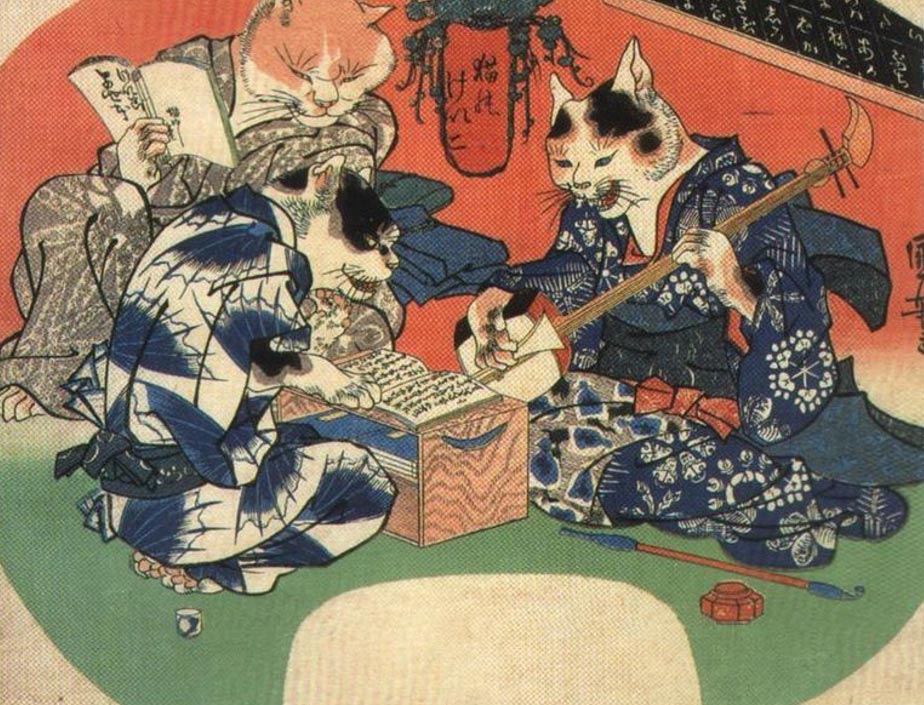 Source: ancient-origins.net
Source: ancient-origins.net
It was first mentioned by Yoshida Kenko in his literary jottings during the Kamakura period from the year 1185 to. Early Japanese folklore contains many references to short-tailed cats. With neko translating to cat in English a nekomata is a type of cat yokai that originated from Japanese folklore. According to folklore a poor 17th-century monk lived in the small Gōtoku-ji temple in Setagaya Tokyo with his pet bobtail cat. Japanese Bobtail is one of the oldest cat breeds with numerous folk tales as the country in which the breed is developed.
 Source: pinterest.com
Source: pinterest.com
Knowing this it should come as no surprise that the maneki-neko is believed to represent one particularly legendary cat. Every culture has a rich tapestry of folk tales and mythology and Japan is no exception. A Cat Yokai Known As Nekomata. The Supernatural Cats of Japan was born. In this telling leopard cats that grow old gain a divine spiritual power shapeshift into a beautiful man or woman and suck the spirit out of humans.
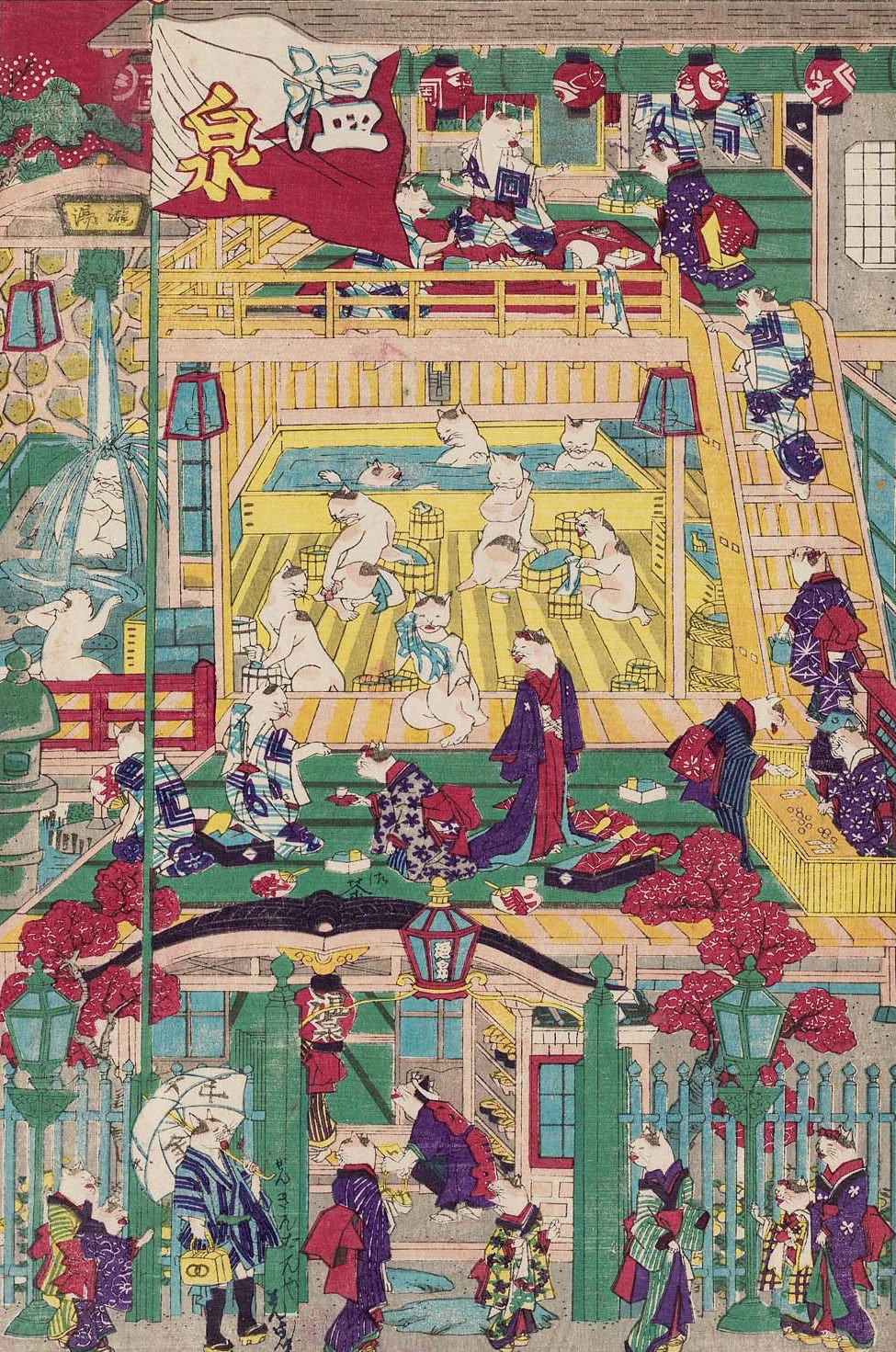 Source: zocalopublicsquare.org
Source: zocalopublicsquare.org
The Japanese Lucky Cat is more traditionally known as Maneki Neko which translated means the beckoning cat. Cats love to lap the oil and at night in the glowing lamplight they cast huge shadows on the walls seemingly morphing into massive creatures standing on their hind legs as they stretched. In Japanese folklore cats are often depicted as supernatural entities or kaibyō かいびょう strange cat. Onibaba The demonic hag of. In Japanese legends the Koi fish is known to brave the currents and represents courage and.
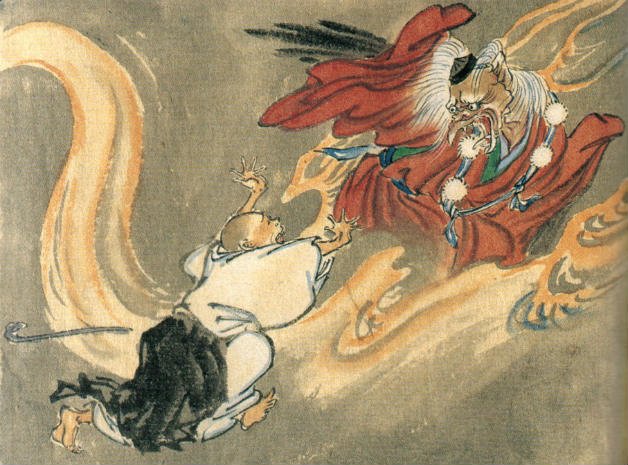 Source: fairytalez.com
Source: fairytalez.com
In Japanese folklore cats are often depicted as supernatural entities or kaibyō かいびょう strange cat. Its quite often believed in Japan that. Blue-eyed female Japanese bobtail cat. Japanese houses were mostly lit by fish oil lamps. CC BY SA 30 Traditional Maneki Neko usually resemble the Japanese bobtail cat.
 Source: yokai.com
Source: yokai.com
According to ancient Japanese folklores a good luck charm for good fortune in business and happiness. Blue-eyed female Japanese bobtail cat. Tanuki The tanuki is still strongly. The maneki-neko of Japan is a figurine often believed to bring good luck to the owner. You may be familiar with Yokai from scary stories or films but there are some characters in the folk law that are a bit cuter although they still might be naughty.
 Source: pinterest.com
Source: pinterest.com
In this telling leopard cats that grow old gain a divine spiritual power shapeshift into a beautiful man or woman and suck the spirit out of humans. Even though that book was published in 2017 Davisson says that there is probably another Japanese cat folklore book on the horizon. Similar to the Black dog of English folklore. Three animals are often written about in Japanese mythology the tanuki the kitsune and the cat. For 3 he plays for 3 he strays and for the last 3 he stays.
 Source: pinterest.com
Source: pinterest.com
Some theorize that the Japanese nekomata legends derive from Chinese senri tales. According to lore cats who lived preternaturally long evolved into these bakeneko killed their owners. The Supernatural Cats of Japan was born. Some theorize that the Japanese nekomata legends derive from Chinese senri tales. Although monkeys fill this scroll there are not quite one hundred as the title suggests.
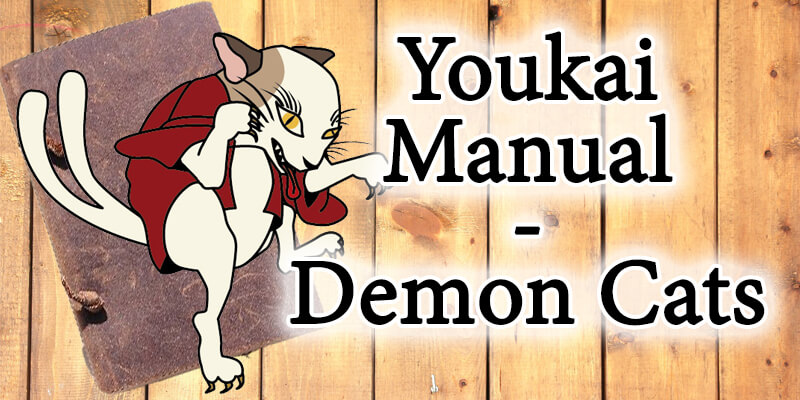 Source: wattention.com
Source: wattention.com
Cats love to lap the oil and at night in the glowing lamplight they cast huge shadows on the walls seemingly morphing into massive creatures. Cats love to lap the oil and at night in the glowing lamplight they cast huge shadows on the walls seemingly morphing into massive creatures standing on their hind legs as they stretched. In Japanese folklore cats are often depicted as supernatural entities or kaibyō かいびょう strange cat. In Chinese lore there is a cat yōkai called senri 仙狸 where 狸 means leopard cat. Ōmagatoki The moment of dusk when the spirit world and the material world overlap.
 Source: thejapaneseshop.co.uk
Source: thejapaneseshop.co.uk
You may be familiar with Yokai from scary stories or films but there are some characters in the folk law that are a bit cuter although they still might be naughty. The distinction between them is often ambiguous but the largest difference is that the nekomata has two tails while the bakeneko has only one. Its Meaning and Powers. Tanuki The tanuki is still strongly. He is the author of Waneko no ashiato Tracking Japans Cats an introduction.
 Source: reddit.com
Source: reddit.com
Japanese houses were mostly lit by fish oil lamps. An American and English proverb Cats and the Afterlife. That number means abundance in Japanese art and this picture may well be a wish for long. In this telling leopard cats that grow old gain a divine spiritual power shapeshift into a beautiful man or woman and suck the spirit out of humans. In Chinese lore there is a cat yōkai called senri 仙狸 where 狸 means leopard cat.
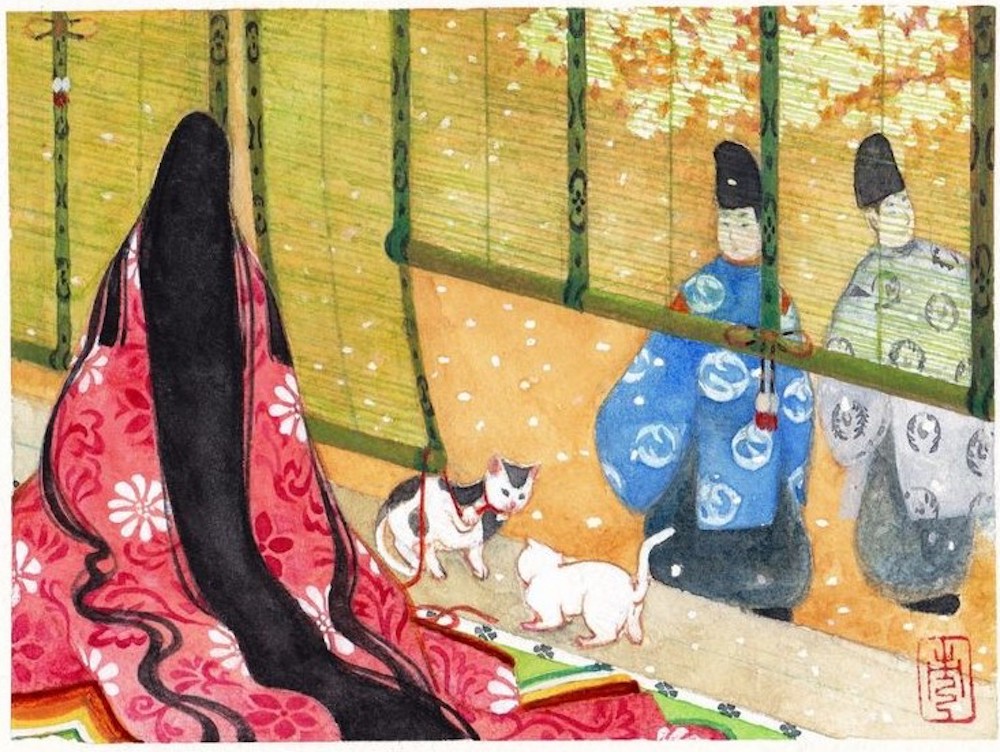 Source: zocalopublicsquare.org
Source: zocalopublicsquare.org
Onibaba The demonic hag of. A Maneki Neko in Hokkaido Japan. But in Japanese folklore feline friends have protective powers and symbolize good fortune. Japanese houses were mostly lit by fish oil lamps. He is the author of Waneko no ashiato Tracking Japans Cats an introduction.
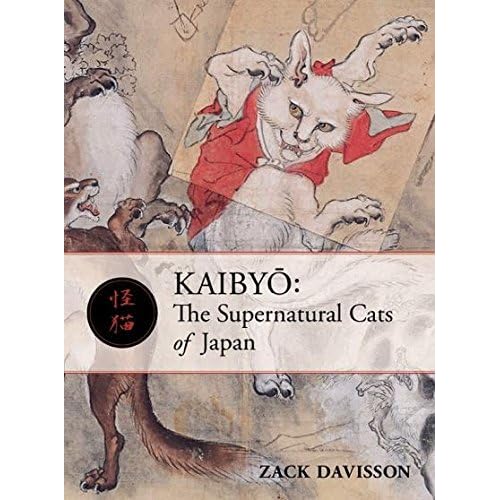 Source: goodreads.com
Source: goodreads.com
The Bakeneko 化け猫 changed cat is a mischievous yōkai in Japanese culture that is one of the more commonly found ghosts in Japan. The Bakeneko 化け猫 changed cat is a mischievous yōkai in Japanese culture that is one of the more commonly found ghosts in Japan. Cats love to lap the oil and at night in the glowing lamplight they cast huge shadows on the walls seemingly morphing into massive creatures. Blue-eyed female Japanese bobtail cat. Japanese Bobtails have a unique pattern of red black and white.
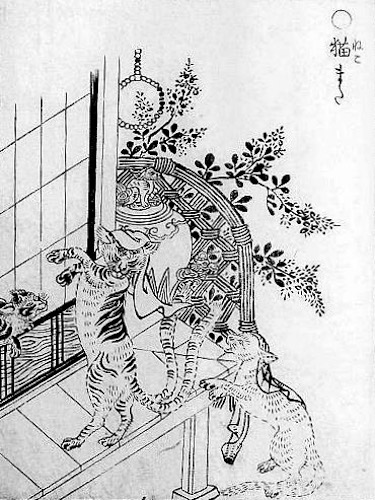 Source: zocalopublicsquare.org
Source: zocalopublicsquare.org
CC BY SA 30 With the strange or exceptional characteristic cats tend to have it is not surprising that the stories of Bakeneko and Nekomata also took hold and the mythical world was enhanced with their legendary stories. An American and English proverb Cats and the Afterlife. Oni The classic Japanese demon. The Japanese have been breeding Koi fish with passion for centuries now. Early Japanese folklore contains many references to short-tailed cats.
 Source: curiousordinary.com
Source: curiousordinary.com
The Bakenko and Nekomata as Spirit Cats. Onibaba The demonic hag of. For 3 he plays for 3 he strays and for the last 3 he stays. The Japanese Lucky Cat is more traditionally known as Maneki Neko which translated means the beckoning cat. Even though that book was published in 2017 Davisson says that there is probably another Japanese cat folklore book on the horizon.
This site is an open community for users to do sharing their favorite wallpapers on the internet, all images or pictures in this website are for personal wallpaper use only, it is stricly prohibited to use this wallpaper for commercial purposes, if you are the author and find this image is shared without your permission, please kindly raise a DMCA report to Us.
If you find this site helpful, please support us by sharing this posts to your favorite social media accounts like Facebook, Instagram and so on or you can also save this blog page with the title japanese cat lore by using Ctrl + D for devices a laptop with a Windows operating system or Command + D for laptops with an Apple operating system. If you use a smartphone, you can also use the drawer menu of the browser you are using. Whether it’s a Windows, Mac, iOS or Android operating system, you will still be able to bookmark this website.





